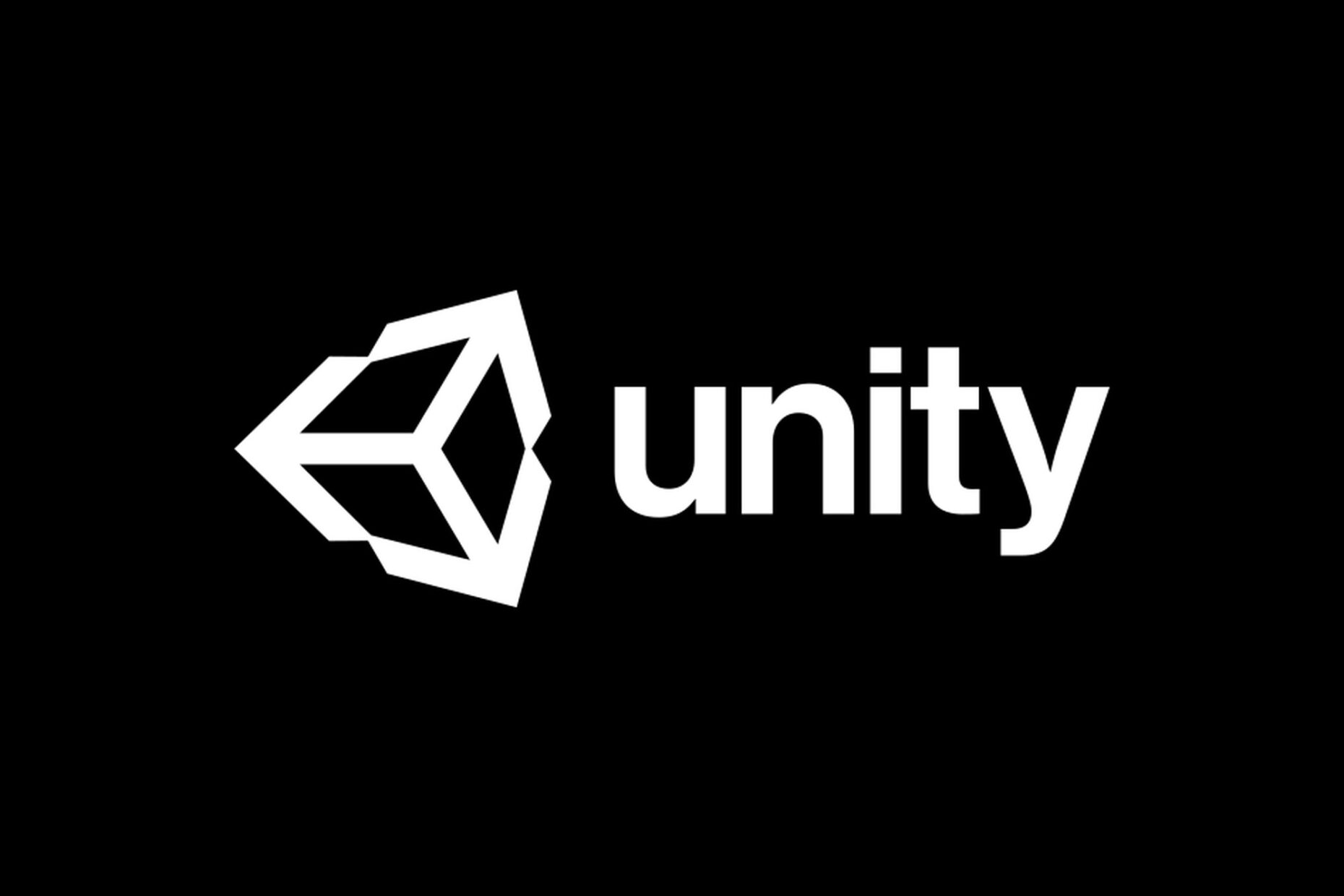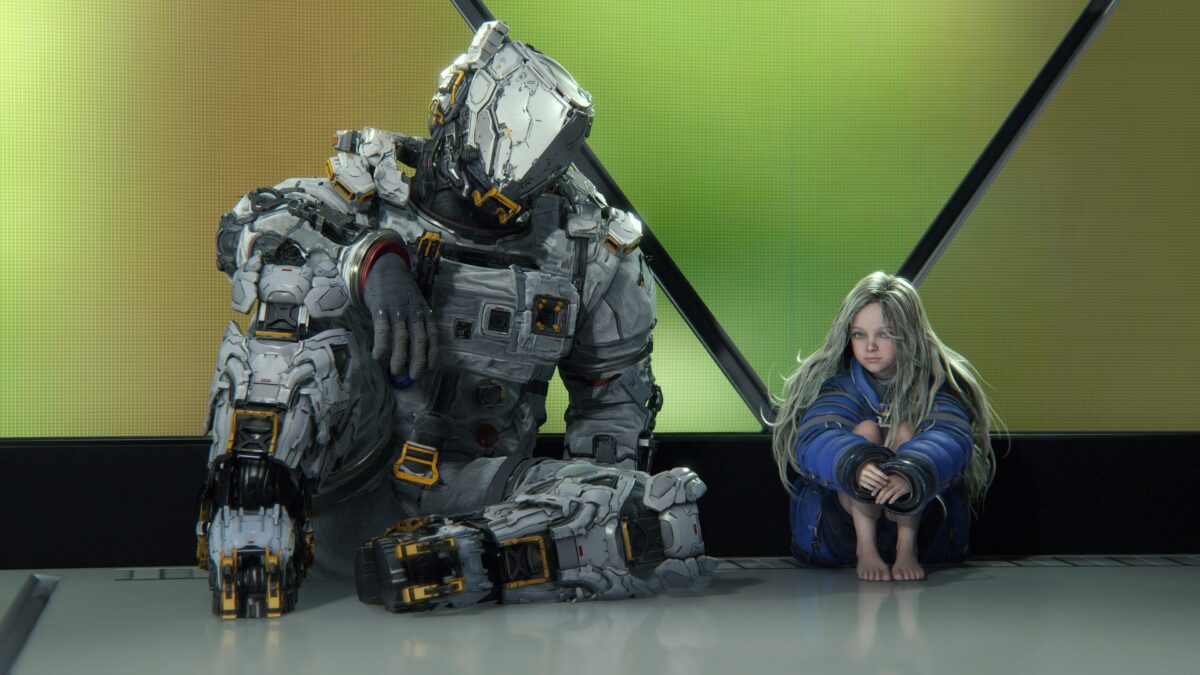On September 12, Unity, the company behind one of the most popular public game engines released a statement describing its new runtime-fee and was met with immediate backlash.
What is Unity?
Here’s a little background on Unity: The engine is used by different levels of developers ranging from students here at University of Oklahoma learning to make games, to indie and AAA studios including the makers of acclaimed titles like Cuphead (2017), Pokemon GO (2016), Genshin Impact (2020) and more.
The engine itself is the platform games like those are made in and with Unity offering a free version to the public, it’s an important tool for those building their development skills.
What sent a shock through the gaming side of social media however, was a new change to its business model. According to the initial post, they announced additions to its subscription plans and a Runtime fee.
The Issue
This Runtime fee was the main concern for many. The $0.20 fee would be charged to the developer for every new install of their games made with the engine. While not affecting most Unity users, the ones that are are the vast majority of studios and devs that have found success with the engine, which is a lot.
The way of which these devs would be charges was also in the air at the time, since the way Unity’s communications team described it, users could install and reinstall games to their discretion and the developer would get charged each time. It was also painfully non-transparent the way Unity’s team also described how it will prevent fraudulent downloads from affecting the Runtime fee.
Backlash
The initial backlash to all of this was brutal. Developers and journalists banded together with their disapproval of the decision. Geoff Keighley, creator and host of The Game Awards, simply replied to the announcement with “What a joke.”
Meanwhile the wide range of Unity developers set to be affected by the changes released their own statements, all banding together in disappointment.
Many of these developers are prepared to take certain measures in the case Unity refused to retract the changes. They range from simply porting their games-in-progress to separate engines to removing their current games made with Unity off of storefronts entirely come January 1, when the changes were slated to roll out.
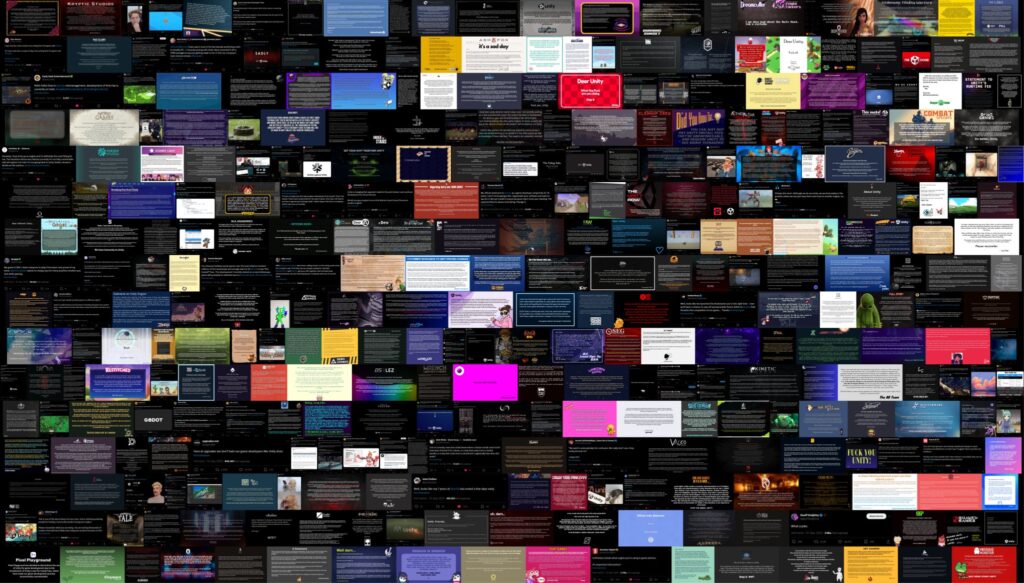
Colossal Order, the studio behind the upcoming Cities: Skylines II (2023) stated the reliability of Unity as a company was damaged.
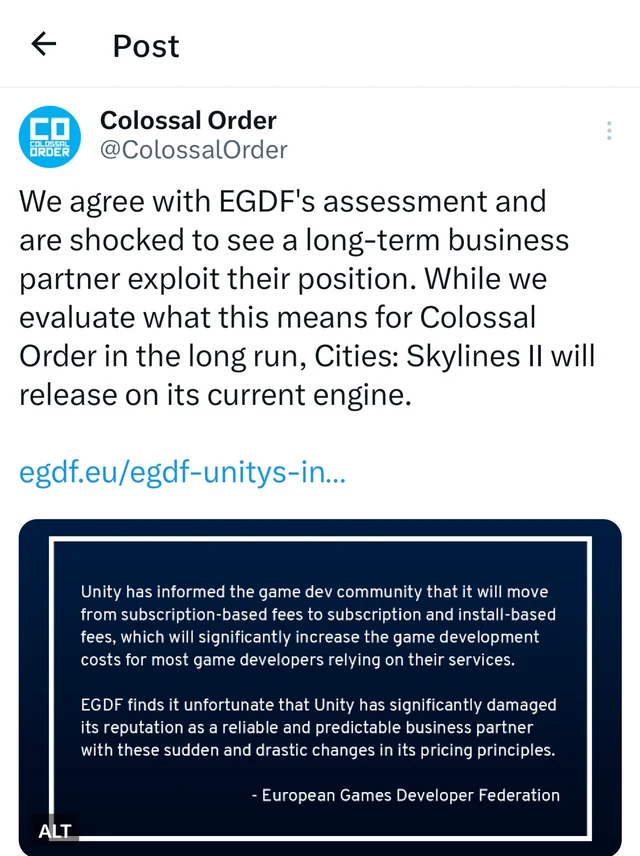
The studio behind Slay the Spire (2017), Mega Crit, issued a statement calling the announcement a violation of trust built with so many developers.
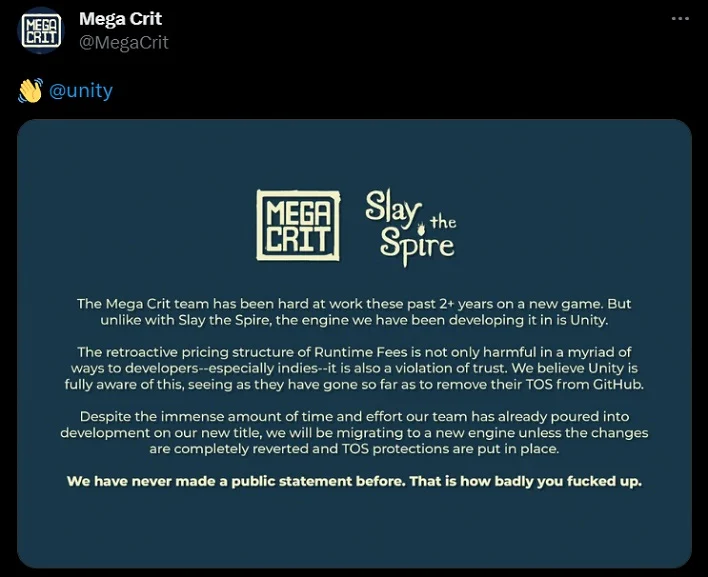
After two years of development of their next title, Mega Crit also stated that unless the changes are completely reverted they will migrate their development progress to a completely different engine.
Additional Controversy
The policy was not the only thing damaging Unity’s reputation, as during the chaos they had removed its Terms of Service from where it was available. The company itself had expressed its disappointment in the media in how its removal of the ToS was framed. They stated that the removal happened before the new announcement, and because “its views were so low.”
The company’s CEO, John Riccitiello was also in some heat after it was discovered that he had sold 2,000 shares of company stock before the announcement, insinuating the backlash would depreciate the company’s stock. This is on top of the already rocky reputation Riccitiello has in the gaming industry as he previously called game developers “f***ing idiots,” if they don’t focus on finding ways to squeeze money out of players. Riccitiello was previously CEO of Electronic Arts before he resigned due to poor performance.
It’s safe to say that Runtime fee was enough to obliterate Unity’s reputation and the amount of trust it had with developers across the industry.
Response
Since the bulk of this commotion, Unity has proceeded to backpedal its initial policy while simultaneously keep the runtime-fee but with minor changes so it would appeal more to its stakeholders.
The fee now comes as an option, with the other being a 2.5% revenue share with the company. Previously, Unity ran a subscription-based model, allowing devs to pay to use the engine annually, without a product’s success being a factor.
Damage Control
Unity’s response also came with a hefty amount of damage control. They announced the fee would be reduced based on certain metrics, going less than the initial $0.20. Additionally, to gain the good faith of regular users of its free service, they offered the ability to remove the “Made with Unity” splash screen for no additional cost (something that incentivized users to upgrade their subscription). The runtime-fee will also only be applied for games made on a later version of Unity shipping in 2024.
Recently, Riccitiello has officially resigned as CEO. According to the New York Times, there was no reason given for his leave, but the timing of the backlash and the revelation of subsequent events, there’s no reason to not attribute them with his departure.
Other than the security failures at both Geoff Keighly’s Game Awards last December and Gamescom this past August, this might be the worst PR disaster in the gaming industry within the last year.
Among Unity’s past users like my colleagues at OU Game Dev Association, many, if not most have moved on to learning other options such as Godot, which is seemingly reveling in the good press Unity is giving them at no cost.
